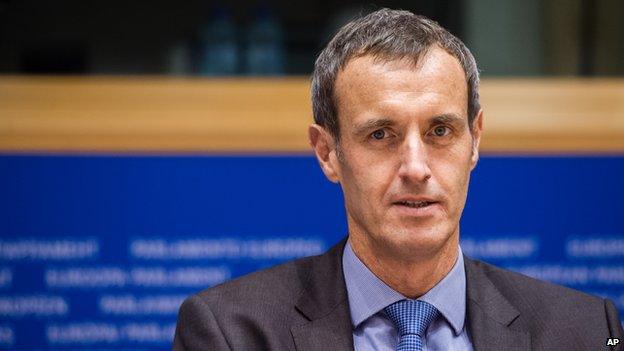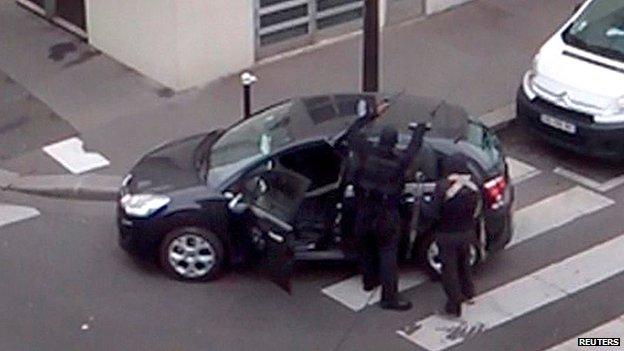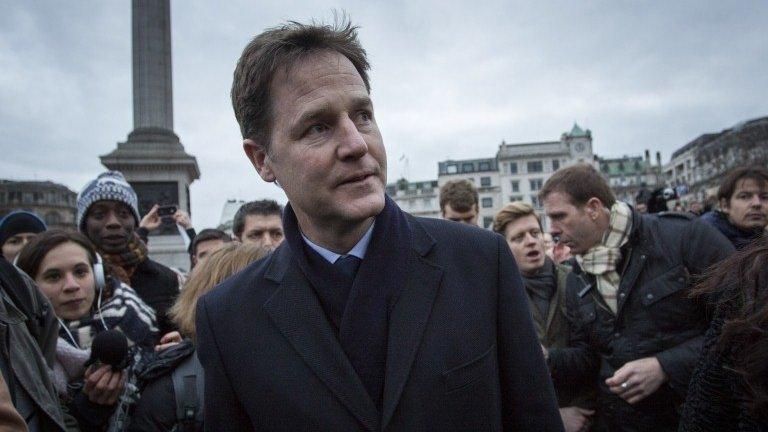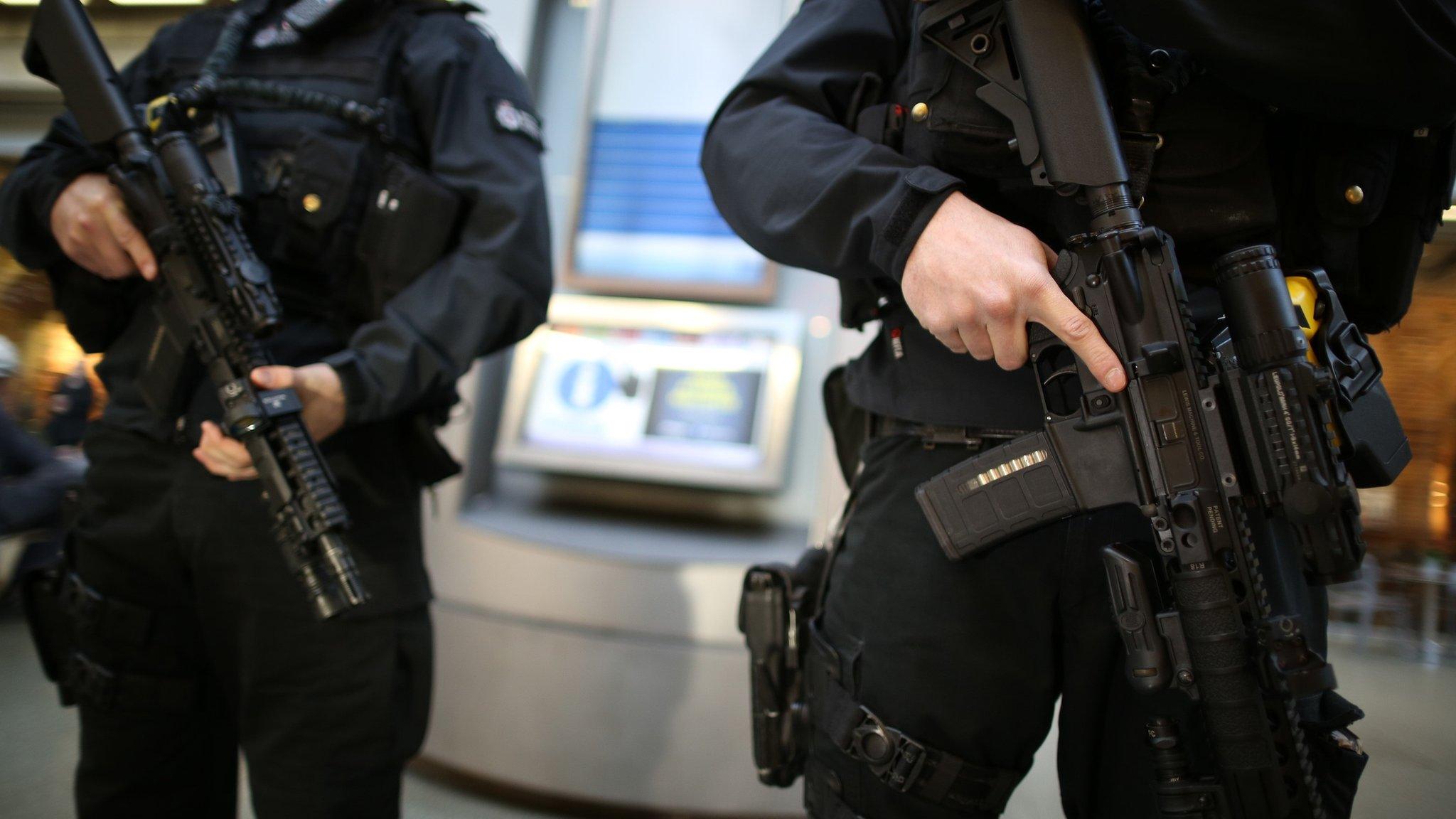Terror threat posed by 'thousands' of EU nationals
- Published

Europol director Rob Wainwright told MPs thousands of EU nationals had travelled to places like Syria
Between 3,000 and 5,000 European nationals pose a potential terror threat after travelling abroad, Europol director Rob Wainwright has warned.
He told MPs that names of 2,500 suspects had been collected from agencies across EU member states.
He also said law enforcement agencies did not have the capability to monitor online communications of suspects.
This was one of the most "pressing problems" facing police, said the EU criminal intelligence body chief.
'Security gap'
Asked how many people had left Europe to travel to countries like Syria, Mr Wainwright told the home affairs select committee: "We're talking about 3,000-5,000 EU nationals.
"Clearly, we're dealing with a large body of mainly young men who have the potential to come back and have the potential or the intent and capability to carry out attacks we have seen in Paris in the last week."
Head of MI5 Andrew Parker had said last week, following the attacks in Paris that left 17 dead, that about 600 Britons were now thought to have travelled to Syria.
Mr Wainwright said there was a "security gap" facing police forces across Europe who are trying to track down extremists online.
In some cases, potential terrorists were "effectively out of reach" of law enforcement agencies, he added.
He said: "The reality is the security authorities today don't have the necessary capability to fully protect society from these kind of threats."
Mr Wainwright also told MPs that criminals and terrorist suspects were increasingly sending "highly encrypted" messages online using the so-called "dark net".
'Sleep soundly?'
When asked about the co-operation of internet companies in tackling extremist activity, he argued that more needed to be done.
"Social media is a recruitment tool," said Mr Wainwright. "Not just that, social media is a propaganda tool.
"We have to have a closer, much more productive relationship between law enforcement and technology firms.
"Also I think we need to have the right legalisation in place to allow the authorities to monitor suspected terrorist activity."

Gunmen Said and Cherif Kouachi pictured outside the offices of Charlie Hebdo, where 12 were killed
Committee chair Keith Vaz asked if Britons could sleep "soundly" at night, to which Mr Wainwright replied: "The British people can be assured that here in the UK we have some of the most well developed and effective counter-terrorism arrangements in the world.
"That said, the threat is here and clearly affects the UK, at least as much as many other countries across Europe. It's a real threat."
His comments come amid renewed debate about whether UK police and security agencies should be given strengthened powers to intercept emails and messages after the attacks in France.
'Jolt of energy'
Meanwhile, Mr Parker's predecessor as director general of MI5 said on Tuesday that the threat of terrorism in the UK has risen - while the ability of the security services to address that threat has decreased.
Lord Evans, speaking in his maiden speech in the House of Lords, said: "When I left MI5 in 2013, I felt cautiously optimistic that we were over the worst as far as al-Qaeda and Islamist terrorist attacks were concerned in this country.
"It seemed to me that we were making significant progress. Regrettably, subsequent events have proved that judgment to be wrong."
The independent crossbench peer said events in Syria and Iraq had given extremist networks in the UK a "jolt of energy" and that he had no doubt the numbers going to fight in Syria and Iraq would rise "significantly" in coming months.
- Published13 January 2015

- Published9 January 2015

- Published8 January 2015